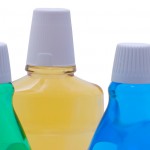
Cancer treatment is increasingly effective but is associated with short and long term side effects. Oral side effects remain a major source of illness despite the use of a variety of agents to prevent them. One of these side effects is oral mucositis (mouth ulcers). The aim of this study was to assess the effect of oral cryotherapy on the development of oral mucositis related to infusion of 5-fluorouracil (5-FU) with leucovorin.
60 Patients were randomised, the experimental group (30) were instructed to hold ice cubes in their mouth shortly before, during, and shortly after infusion of 5-FU with leucovorin. The control group(30) received routine care. Oral mucositis in the patients was evaluated at 7, 14, and 21 days after chemotherapy. For analysis of data, chi-square, Fisher’s tests were used; p < 0.05 was accepted as statistically significant.
They found that in the majority of patients receiving cryotherapy, oral mucositis was not observed (Grade 0) at 7 and 14 days. Similarly, incidence of Grades 1, 2, and 3 oral mucositis in the experimental group was quite a bit lower when compared to the control group (p < 0.05). On day 21, no statistically significant difference between the experimental and control groups was determined based on the development of oral mucositis (p > 0.05).
They concluded that:-
oral cryotherapy has a significant contribution to the protection of oral health by reducing mucositis score according to the WHO mucositis scale, especially on the 7th and 14th days. Nurses’ awareness of how cryotherapy can affect patients and options for resolving problems will enable them to provide a higher standard of individualized care.
Katrancı N, Ovayolu N, Ovayolu O, Sevinc A. Evaluation of the effect of cryotherapy in preventing oral mucositis associated with chemotherapy – A randomized controlled trial. Eur J Oncol Nurs. 2011 Sep 10. [Epub ahead of print]PubMed PMID: 21911313.
Other relevant reviews
A Cochrane review of this area was most recently undated in April 2011.
They identified a total of 131 studies with 10,514 randomised participants. There were ten interventions, where there was more than one trial in the meta-analysis, showed some statistically significant evidence of a benefit (albeit sometimes weak) for either preventing or reducing the severity of mucositis, compared to either a placebo or no treatment. These ten interventions were: aloe vera, amifostine, cryotherapy, granulocyte-colony stimulating factor (G-CSF), intravenous glutamine, honey, keratinocyte growth factor, laser, polymixin/tobramycin/amphotericin (PTA) antibiotic pastille/paste and sucralfate.
Two interventions, cryotherapy (ice chips) and keratinocyte growth factor (palifermin®) showed some benefit in preventing mucositis. Sucralfate is effective in reducing the severity of mucositis, and a further seven interventions, aloe vera, amifostine, intravenous glutamine, granulocyte-colony stimulating factor (G-CSF), honey, laser and antibiotic lozenges containing polymixin/tobramycin/amphotericin (PTA) showed weaker evidence of benefit.
Worthington HV, Clarkson JE, Bryan G, Furness S, Glenny AM, Littlewood A, McCabe MG, Meyer S, Khalid T. Interventions for preventing oral mucositis for patients with cancer receiving treatment. Cochrane Database Syst Rev. 2011 Apr 13;(4):CD000978. Review. PubMed PMID: 21491378.

[…] Dental Elf – 16th Sep 2011- Using ice chips reduces oral mucositis in patients undergoing chem… […]